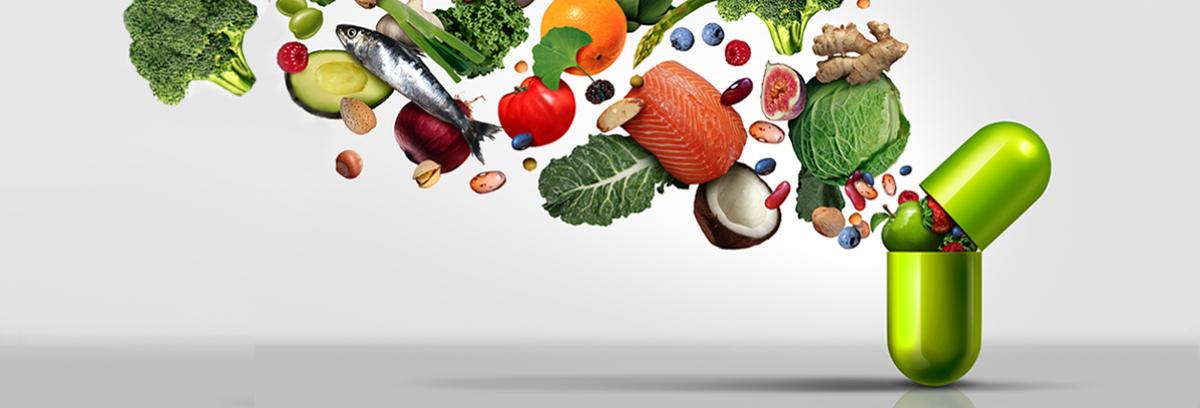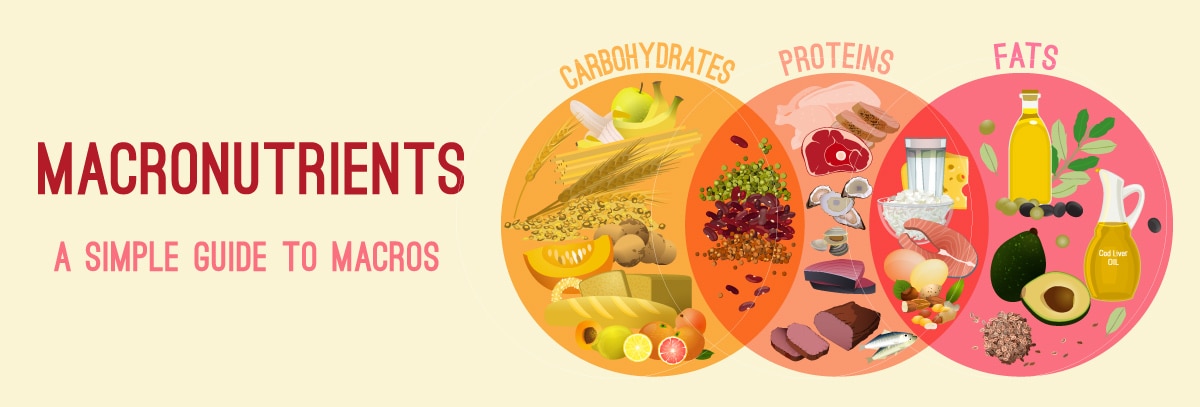
NUTRIENTS: WHY THEY MATTER
January 25, 2021
|
7 min
NUTRIENT ROLES
Good nutrition is part of the Nestlé heritage. Since our humble beginnings under the guiding hand of infant nutrition pioneer Henri Nestlé, the Nestlé Company has maintained a commitment to nutrition and research. Today, we are one of the largest investors in food technology research and development in the world dedicated to the wellness of our family of consumers.
NUTRIENTS YOUR BODY NEEDS
Your body is your greatest asset and needs to be nourished with meals balanced out with fibre, carbohydrates, protein, vitamins, minerals, antioxidants, caffeine, whole grains, probiotics and fats. Yes, it seems like an impossibly long list. But that is why Nestlé is empowering you to EAT SMARTER as most of these nutrients can be found in foods that make it to your table anyway – you just need to balance out that serving and know what it is you put on your plate!
WHAT NUTRIENTS DO FOR YOU
WHOLE GRAINS
Whole grains and foods made from them contain the entire grain seed: the bran, the endosperm and the germ. Whole grains are a good source of fibre, B vitamins, iron and antioxidants. Studies show that regular consumption of whole grains help to reduce the risk for coronary heart disease and certain types of cancer. Below are ways to boost your whole grains intake:
* Choose whole grain bread instead of white bread.
* Have a serving of whole grain breakfast cereals in the morning.
* Substitute half of the white rice with brown rice.
* Add oats to cookies or other desserts.

CARBOHYDRATES
To keep us at peak performance, full of life and able to concentrate well, we need energy. Our body most easily makes use of the energy obtained from carbohydrates. But not all carbohydrates are the same. Carbohydrates include simple sugars, complex sugars as well as dietary fibre. Carbohydrate foods include pasta, rice, potatoes and cereals.
FIBRE
Fibre is the portion of plant material that humans are not able to absorb or digest. There are two kinds of dietary fibre, soluble and insoluble. Both are important for proper bowel function. Fibre can also help lower cholesterol, manage diabetes, and maintain a healthy body weight. It can be found in soybeans, carrots, wheat germ, apples, popcorn, baked potatoes, almonds, strawberries, dried prunes, oranges, broccoli and corn.
PROTEIN
Protein provides the nutrients for muscles, organs, the skin, hair and nails. Enzymes and hormones also consist of protein. Our body’s defences only function to the best of their ability with protein. For this reason we must ensure we have a sufficient supply. This also applies to children. Our body needs an especially large number of nutrients for growth and for increasing muscle. Protein foods include meat, fish, eggs, milk, yoghurt and cheese.
VITAMINS
Vitamins are involved in numerous processes throughout our bodies. For example, they take part in the production of hormones, enzymes and blood cells. In addition, our skin, muscles, nerves and immune systems all depend upon vitamins. Even a slight vitamin deficiency can become noticeable: we tire more easily, have trouble concentrating and are more susceptible to colds. Since our bodies cannot produce most vitamins on their own, we have to ingest them as part of our diet.
Include vitamin chart (as per below).
| Vitamin | Important For… | Good Sources |
| Vitamin A and beta-carotene (that the body converts to Vitamin A) | Vision, skin, growth | Liver, tuna, eggs, butter, margarine, gauda cheese, eel |
| Vitamine D | Bones, teeth, calcium absorption | Fish (herring, kippers), mushrooms, eggs, cheese spreads |
| Vitamin E | Protecting body cells | Hazelnuts, wheatgerm oil, walnuts, seeds, margarine, butter |
| Vitamin K | Blood clotting, bones | Milk and dairy products, meat, eggs, potatoes |
| B-Vitamins (B1, B2, B6, B12) | Obtaining energy from protein, fat, carbohydrates, nerve function, blood formation | Wholegrain products, pulses, potatoes, pork, milk, vegetables, fruit, fish |
| Folic acid (a B-Vitamin) | Formation of blood and body cells, nervous system development in the unborn baby | Brewer’s yeast, baker’s yeast, eggs, soybeans, chickpeas, white beans, liver |
| Vitamin C | Iron absorption, nervous system, blood vessels, connective tissue | Bell peppers, broccoli, fennel, cauliflower, red cabbage, rose hips, mandarin oranges |
Source: Biesalski / Grimm: Taschenatlas der Ernahrung. (Pocket Atlas or Nutrition) 2004.
MINERALS
Whether we are considering metabolism, human growth, blood formation, or the function of nerves and muscles – none of these could function without minerals. For example, sodium and potassium regulate our body’s fluid balance. Calcium provides for strong bones and teeth. Iron is important in blood formation and iodine maintains the function of the thyroid gland.
Include mineral chart (as per below).
| Mineral | Important For… | Plentiful in… |
| Calcium | Building bones and teeth, blood clotting, nervous system function | Milk, yogurt, cheese, green vegetables, calcium-rich mineral water |
| Phosphorus | Building bones, metabolism | Milk, cheese, meat, sausage, fish |
| Sodium | Fluid balance, nerve and muscle function | Table salt, sausage, cheese, bread, pizza |
| Potassium | Fluid balance, transmission of nerve and muscle signals | Potatoes, vegetables, bananas, dried fruit, pulses |
| Magnesium | Building bones, energy metabolism, enzymes, nerve and muscle function | Whole-grain cereal products, milk and milk products, green vegetables. berries, oranges, bananas |
| Iron | Blood formation, oxygen transport in the blood | Meat, egg yolk, sausage, whole-grain cereal products, oat flakes, millet |
| Iodine | Synthesis or thyroid hormones | Ocean fish, sea food, food prepared with iodized salt |
| Florine | Resistance of teeth to cavities, for hardening of tooth enamel | Fish, cereals, walnuts, black tea, mineral water |
| Selenium | Cellular protection | Liver, fish, meat, nuts, legumes, cereals |
| Zinc | The body’s defences, wound healing | Meat, shellfish, cheese |
Source: Nestlé Brochures ‘Gesund genießen’, ‘Kalorien mundgerecht’ [Healthy Eating, ‘Bite-sized calories] (Umschau/Braus. 2003)
ANTIOXIDANTS
Antioxidants come to the rescue of healthy body cells by destroying some of the free radicals that would otherwise harm and damage our healthy cells.
Our bodies make their own antioxidants, but they also make use of antioxidants in the foods we eat. Studies have shown there are many benefits from eating plenty of antioxidant-rich foods which, together with an active and balanced lifestyle, can help reduce the risk of certain cancers and heart disease. Great antioxidant foods include coffee, berries, vegetables and dark cocoa chocolate.
CAFFEINE
Caffeine is one of the most commonly consumed stimulants in the world. Absorbed easily and rapidly by both the stomach and small intestine, it then circulates throughout the whole body, including the brain. Like everything, caffeine should be consumed in moderation. The health benefits of caffeine on healthy adults include increased alertness or ability to concentrate. Caffeine also has some antioxidant properties. Caffeine can be found in coffee, tea, certain soft drinks and chocolate.
PROBIOTICS
We know that some bacteria can be bad for you, but bacteria are actually a normal part of your body. Probiotics can help you make sure you have all the good bacteria you need. They are found naturally in some fermented foods and are added to other foods or provided in a supplement for their health benefits. Probiotics are present in foods like yoghurt, juice, cereal, asparagus, bananas, onions, grains and garlic.
FATS
Fat is an important nutrient, as it contains fatty acids essential for life that our bodies need in order to synthesize hormones and build cell walls. Fat also provides us with the fat-soluble Vitamins A, D, E and K. In addition, our organs use fat as a cushion to help prevent injury. And, of course, fat tastes very good, since it is an important carrier of aroma and flavour. With 37 KJ per gram, fat also provides a large amount of energy, indeed, more than twice as much as the same quantity of carbohydrate or protein. Moderate your fat intake from food sources such as meat, milk, sausage, cheese, cake, fruits and vegetables.
NUTRIENT-RICH FOOD SOURCES
Essential nutrients can be found in the most simplest of foods. It all depends on the density of nutrients food contains in comparison to the number of kilojoules (kJ). By Eating Smarter you will get all the essential nutrients that you need for Living Better, including vitamins, minerals, phytonutrients, essential fatty acids and fibre for the least number of kilojoules (kJ).